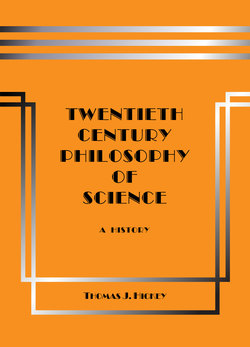Читать книгу Twentieth-Century Philosophy of Science: A History (Third Edition) - Thomas J. Hickey - Страница 54
На сайте Литреса книга снята с продажи.
3.23 Componential Artifactual Semantics Illustrated
ОглавлениеThe set of affirmations believed to be true and predicating characteristics universally and univocally of the term “raven” such as “Every raven is black” are semantical rules describing component parts of the complex meaning of “raven”. But if a field ornithologist captures a red bird specimen that exhibits all the characteristics of a raven except its black color, he must make a decision. He must decide whether he will continue to believe “Every raven is black” and that he holds in his birdcage some kind of red nonraven bird, or whether he will no longer believe “Every raven is black” and that the red bird in his birdcage is a red raven. Thus a semantical decision must be made. Color could be made a criterion for species identification instead of the ability to breed, although many other beliefs would also then be affected, an inconvenience that is typically avoided as a disturbing violation of the linguistic preference that Quine calls the principle of “minimum mutilation” of the web of belief.
Use of statements like “Every raven is black” may seem simplistic for science (if not quite bird-brained). But as it happens, a noteworthy revision in the semantics and ontology of birds has occurred due to a five-year genetic study launched by the Field Museum of Natural History in Chicago, the results of which were reported in the journal Science in June 2008. An extensive computer analysis of 30,000 pieces of nineteen bird genes showed that contrary to previously held belief falcons are genetically more closely related to parrots than to hawks, and furthermore that falcons should no longer be classified in the biological order originally named for them. As a result of the new genetic basis for classification, the American Ornithologists Union has revised its official organization of bird species, and many bird watchers’ field guides have been revised accordingly. Now well informed bird watchers will classify, conceptualize and observe falcons differently, because some parts of the meaning complex for the term “falcon” have been replaced with a genetically based conceptualization. Yet given the complexity of genetics some biologists argue that the concept of species is arbitrary.
Our semantical decisions alone neither create, nor annihilate, nor change mind-independent reality. But semantical decisions may change our mind-dependent linguistic characterizations of mind-independent reality and thus the ontologies, i.e., the various aspects of reality that the changed semantics reveals.
